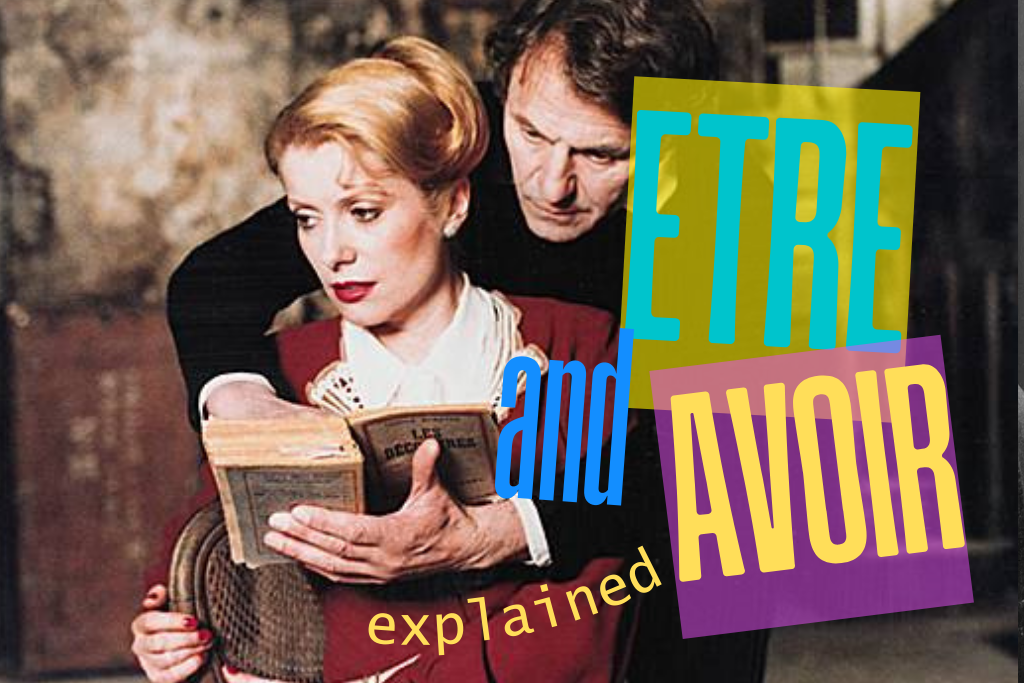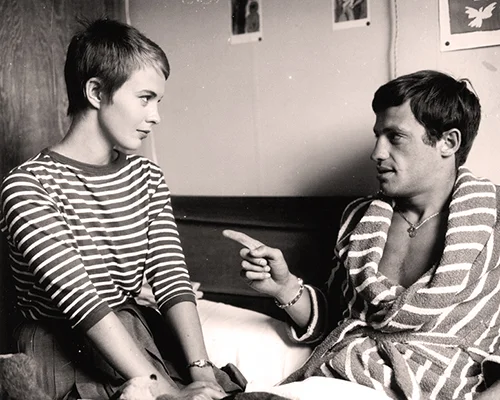In My Life in France, Julia Child describes her first experience of a formal French meal:
“The waiter wheeled over a cart with a large silver dome. With a dramatic flourish, he lifted the lid to reveal the most perfectly roasted duck, carved tableside with a precision that felt almost ceremonial. Every movement of the service seemed calculated to heighten the experience.”
This reverence for detail and ritual extends beyond the dining table and into the world of French business. In France, business is not a sprint to the finish line but a carefully paced exchange where relationships, trust, and decorum take precedence. Every meeting, every meal, is an opportunity to cultivate rapport, foster collaboration, and demonstrate respect for the art of professionalism.
Consider a lunch with a senior executive at Société Générale. The table becomes a stage for meaningful conversation, where discussions about shared goals flow naturally between sips of wine and tastes of coquilles Saint-Jacques. To navigate these moments with ease, it’s essential to understand the nuances of French etiquette.
Let’s delve into the dos and don’ts of French business culture to ensure your next meeting or meal is a success.
French Etiquette for Professionals: What You Need to Know
French business meetings are a blend of formality, intellectual engagement, and deliberate pacing. To navigate them effectively, keep the following dos and don’ts in mind:
Do start with a formal greeting. French professionals value politeness and respect, which begin with a proper Bonjour, Monsieur/Madame, accompanied by a light handshake. No need to go hard, it’s more about trust than strength.
Do engage in intellectual small talk before diving into business. Topics like art, culture, or even recent travels are welcome. Avoid overly personal or controversial topics, as they might come across as intrusive or inappropriate.
Don’t expect quick decisions. French meetings are often an exchange of ideas, aimed at reaching consensus rather than closing deals immediately. Patience and thoughtful contributions are key.
Examples of Intellectual Small Talk For Meetings and Business Meals in France
Small talk is an important part of establishing rapport in French meetings. Here are a few examples of topics that work well and the types of conversations that can help set the right tone:
Cultural Topics
- “Avez-vous visité la dernière exposition au Musée d’Orsay ?”
(“Have you visited the latest exhibition at the Musée d’Orsay?”) - Avez-vous eu l’occasion de voir l’exposition sur Picasso au Centre Pompidou ?”
(“Have you had the chance to see the Picasso exhibition at the Centre Pompidou?”) - “J’ai entendu dire que le dernier film de [name of a French director] est remarquable. L’avez-vous vu ?”
(“I heard the latest film by [name of a French director] is remarkable. Have you seen it?”) - “J’ai lu récemment un article sur l’impact de l’art contemporain en France. Qu’en pensez-vous ?”
(“I recently read an article about the impact of contemporary art in France. What’s your opinion?”)
Current Events
- “La Coupe du Monde a été fascinante cette année. Avez-vous regardé les matchs ?”
(“The World Cup was fascinating this year. Did you watch the matches?”) - “La nouvelle réglementation européenne semble intéressante pour notre secteur. Comment l’interprétez-vous ?”
(“The new European regulations seem interesting for our industry. How do you interpret them?”) - “J’ai lu un article sur l’évolution du télétravail en France. Est-ce aussi un sujet dans votre secteur ?”
(“I read an article about the evolution of remote work in France. Is this also a topic in your field?”)
Travel and Experiences
- “J’ai passé le week-end en Provence. La lumière et les paysages sont vraiment inspirants.”
(“I spent the weekend in Provence. The light and landscapes are truly inspiring.”) - “Avez-vous une région française préférée pour vos vacances ?”
(“Do you have a favorite French region for your holidays?”) - “Connaissez-vous un bon restaurant dans le quartier ? J’ai entendu parler de [name of restaurant], mais je n’y suis jamais allé.”
- (“Do you know a good restaurant in the area? I’ve heard about [name of restaurant], but I’ve never been.”)
- “Le week-end dernier, je suis allé(e) en Normandie. Vous y allez parfois ? C’est vraiment magnifique.” (“Last weekend, I went to Normandy. Do you go there sometimes? It’s truly beautiful.”)
Literature and Philosophy
- “J’ai relu récemment Camus. Ses idées sur l’absurde me semblent toujours d’actualité.”
(“I recently reread Camus. His ideas on the absurd still seem very relevant to me.”) - “Quel est votre auteur français préféré ? J’aimerais découvrir de nouvelles œuvres.”
(“Who is your favorite French author? I’d love to discover new works.”)
Food and Wine
- “Avez-vous déjà dîné au Jules Verne ? La vue de la Tour Eiffel est incroyable.”
(“Have you ever dined at Jules Verne? The view from the Eiffel Tower is incredible.”) - “Je suis toujours à la recherche d’un bon Bordeaux. Avez-vous des recommandations ?”
(“I’m always looking for a good Bordeaux. Do you have any recommendations?”)
Light Humor or Observations
- “Je dois avouer que je n’arrive pas à maîtriser parfaitement la bise. Combien de fois doit-on embrasser à Paris ?”
(“I must admit, I still haven’t mastered la bise. How many kisses is it in Paris?”) - “J’ai entendu dire que les Parisiens ne sourient jamais dans le métro. Vous confirmez ?”
(“I’ve heard that Parisians never smile on the metro. Is that true?”)
Topics to Avoid in French Meetings
While the French enjoy intellectual and cultural discussions, some topics are best avoided unless initiated by your counterpart:
- Politics: “Que pensez-vous des élections récentes ?” (This can be divisive and is often too personal for business settings.)
- Personal Finances: “Quel est votre salaire ?” (This is considered intrusive.)
- Controversial Topics: “Qu’en pensez-vous de la réforme des retraites ?” (These can lead to heated debates.)
Building Rapport Through Small Talk
Engaging in intellectual small talk creates a comfortable atmosphere and sets the stage for productive discussions. By showing curiosity and cultural awareness, you’ll leave a lasting impression as someone who understands the nuances of French business etiquette.
Glossary of Key Phrases for Business Meals in France
Before the Meal
-Bonjour, Monsieur/Madame. – Hello, Sir/Madam.
-Enchanté(e) de faire votre connaissance. – Nice to meet you.
-Pouvons-nous nous retrouver à midi ? – Can we meet at noon?
-Vous connaissez un bon restaurant? –Do you know a good restaurant?

During the Meal
-Que me recommandez-vous ? – What do you recommend?
Santé ! – Cheers!
-Ce vin est vraiment excellent. – This wine is truly excellent.
-C’est un plaisir de partager ce repas. – It’s a pleasure to share this meal.
Navigating the Conversation
-Parlons un peu de nos objectifs. – Let’s talk a bit about our goals.
-Quelles sont vos priorités pour ce projet ? – What are your priorities for this project?
-J’apprécie votre perspective. – I value your perspective.
Ending the Meal
-Merci beaucoup pour ce déjeuner. – Thank you very much for this lunch.
-Nous vous enverrons les détails après cet échange. – We’ll send you the details after this discussion.
-Au plaisir de vous revoir. – Looking forward to seeing you again.
“La grandeur d’un métier est peut-être, avant tout, d’unir des hommes.” – Antoine de Saint-Exupéry
“The greatness of a profession is perhaps, above all, in uniting people.”
Recommended Reads for Mastering French Business Culture
To truly understand French business etiquette, it helps to dive into the culture, mindset, and unique way of communicating. These insightful and entertaining books offer a window into the French approach to work, relationships, and conversations—essential for anyone looking to excel in a professional setting.

● French Toast: An American in Paris Celebrates the Maddening Mysteries of the French by Harriet Welty Rochefort
This book humorously unpacks French quirks, from their love of tradition to their unique approach to business etiquette.
Excerpt:
In France, meals aren’t just about food—they’re about conversation, connection, and slowing down to savor both. The more time you spend at the table, the more respect you build.
Why Read It: A delightful mix of humor and insight that helps readers understand French priorities and values.
● Au Contraire: Figuring Out the French by Gilles Asselin and Ruth Mastron
This book dives deep into the mindset of French professionals, offering insights into their approach to work and business etiquette.
Excerpt:
While Americans seek efficiency in every interaction, the French find value in savoring the moment—whether it’s during a meal or a discussion. Time, for them, is as much about quality as it is about productivity.
Why Read It: Perfect for understanding the philosophy behind French etiquette and how it contrasts with other cultures.
● The Bonjour Effect: The Secret Codes of French Conversation Revealed by Julie Barlow and Jean-Benoît Nadeau
A modern take on French communication, this book explores why the French say what they say—and what they really mean.
Excerpt:
Every bonjour carries a subtext. It’s not just a greeting; it’s an invitation to engage, to respect, and to connect on French terms.
Why Read It: Essential for decoding the subtleties of French conversation, both in professional and social contexts.
“Nous n’avons pas beaucoup de clients ; nous n’avons qu’un seul client : le monde.” – Jean-Louis Dumas (ancien PDG de Hermès)
“We don’t have a lot of customers; we have only one customer: the world.”
Final Thoughts on French Etiquette For Professionals
Navigating French business etiquette is about more than following rules—it’s about embracing the values of precision, thoughtfulness, and connection that define French culture.
As Carlos Ghosn, the former CEO of Renault-Nissan, famously said:
“You don’t build a reputation in business on promises; you build it on results.”
In France, delivering results is about more than efficiency—it’s about creating trust, fostering meaningful dialogue, and demonstrating excellence at every step, whether in meetings or business meals. By mastering these nuances, you’ll position yourself as a professional who truly understands the French way of doing business.
When to Use Être or Avoir in French: Exercises With Real-Life Examples
If you live in France, even with basic French, you hear être and avoir everywhere….
Aimer in French: Meaning, Conjugation & Usage
Aimer in French looks simple. And in many ways, it is. It’s one of the…
Valentine’s Day in France: How to Say It, Wish It, and Understand It in Real French
France has long been called le pays de l’amour (the country of love, luh pay-ee…
What happens on the 2nd of February in France?
February 2nd in France sits in the Carnival season. Americans know Mardi Gras. This is…
She Didn’t Just Move to Provence. She Learned to Belong.
Interview with Carolyne Kauser-Abbott, Founder of Perfectly Provence Some people fall in love with Provence…
Beyond Strasbourg & Colmar: 5 Unexpected French Christmas Markets to Visit in 2025
December in France is more than a season. It is an atmosphere (une ambiance). A…







